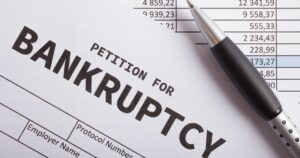Chapter 7 bankruptcy is a great option if you feel like you are drowning in debt. This type of bankruptcy is considered “consumer liquidation.” It eliminates many of your debts. However, there is a catch: you may have to liquidate some assets.
Is it possible to protect your assets when filing for Chapter 7 bankruptcy? It can be for personal property in some cases. Today, we will go over a few things you should know about how this works so that you know how to plan.
Keeping your assets safe from Chapter 7 bankruptcy starts with understanding your exemptions. Below, we will explain what to expect.
Which assets are protected from Chapter 7?
Whether you can keep assets depends on many factors, such as their overall value. Chapter 7 exempt property laws also vary by state.
What personal property is exempt from Chapter 7 bankruptcy? Generally, the following items are protected (or can be protected–if you take the right steps):
- Appliances
- Cars with a low retail value
- Clothes
- Essential office equipment
- Furniture
- Jewelry (to an extent)
- Retirement accounts
- Some equity in personal assets, such as in your home
Which assets are not protected from Chapter 7?
You may have to surrender several assets after filing for Chapter 7 bankruptcy. That will help to pay off your creditors for the money that is owed.
Here is a short list of assets that you should be prepared to give up:
- Cash
- Extra vehicles
- Family heirlooms
- High-end jewelry and other items
- Property
- Vacation homes
Note: If you wish to keep a specific asset that is on this list, such as a car, a lawyer can work with your creditor on a reaffirmation agreement. That makes it so that you can retain the asset as long as you promise to repay the full balance over a given timeframe.
How to Maximize Your Protected Assets From Chapter 7
Planning out your exemptions should only be done under the guidance of a qualified bankruptcy attorney. Once you have retained an attorney in your area, you can work together to figure out how to keep your assets and make the most of them before filing for Chapter 7 bankruptcy.
Often, your attorney will recommend putting money into your retirement, mortgage, or business, as these are things that can help your future and bring down your overall expenses over time. You can also invest in food and other essential items you may need for your home or children so that you are stocked up and not behind in a few months in case you are low on funds at that time.
Your attorney can give you clear guidelines on how to invest your money before completing the paperwork, as well as advise you on deadlines to avoid issues. Exemption planning can be tricky, so working with a professional is vital.
How a Chapter 7 Bankruptcy Attorney Can Help
When it comes to protecting your assets from Chapter 7 bankruptcy, consulting an attorney should be the first thing you do. An attorney can help you maximize your exemptions and safeguard your assets in a legal way, reducing your chance of unknowingly committing fraud.
The bankruptcy filing process is lengthy and often confusing, especially if you have multiple high-value assets. Protect yourself and your personal assets by working with an attorney who is educated in your state’s exemption laws and committed to helping you do things right the first time around.

